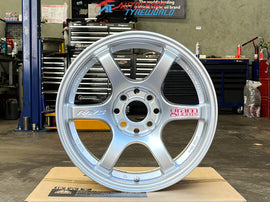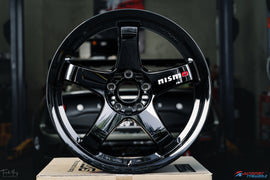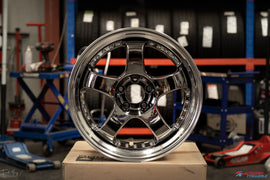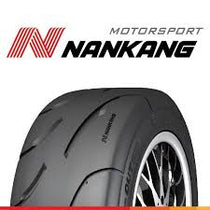Winter Tyres vs. All-Season Tyres
How to choose the right tyre for your vehicle and climate.
The Big Question: Do You Need Winter or All-Season Tyres?
“Do I really need winter tyres?” — it’s one of the most common questions drivers ask tyre experts every year. Unfortunately, there’s no one-size-fits-all answer. The right choice depends on where you live, your local weather conditions, how much you drive, and your vehicle type.
In short:
-
If you live somewhere that experiences cold, icy winters, you’ll need winter tyres for safety and performance.
-
If your winters are mild, with mostly rain or occasional frost, all-season tyres could be the more practical choice.
Let’s explore the key differences to help you decide.
1. Your Location and Legal Requirements
In many European countries, winter tyres — sometimes called snow tyres — are required by law during certain months or weather conditions. In others, they’re strongly recommended.
Before choosing, check your local regulations. If winter tyres are mandatory, not fitting them could result in fines or insurance penalties.
If they’re optional, your decision will depend on your climate and driving habits.
Tip: You can check whether winter tyres are mandatory in your country or region using your local transport authority’s website.
2. Your Weather Conditions
The biggest deciding factor is temperature.
-
Winter tyres are designed for cold conditions — when the temperature regularly falls below 7°C.
Their special rubber compound remains soft and flexible, providing excellent grip on ice, snow, and slush. Their deep, wide tread patterns also help channel away snow and water, reducing the risk of skidding or aquaplaning. -
All-season tyres, by contrast, are designed for moderate climates where winters are mild.
They combine some features of both summer and winter tyres, offering solid year-round performance on dry, wet, or lightly snowy roads.
If your winters rarely bring heavy snow or extreme cold, all-season tyres might be a more economical and convenient option.
3. Your Driving Habits and Mileage
How often you drive also matters.
-
If you mainly drive short city trips — to work, school, or local shops — all-season tyres may be enough. They save time and money by eliminating the need for seasonal tyre changes.
-
If you drive long distances, visit mountainous areas, or frequently encounter snow and ice, dedicated winter tyres are the safer and more reliable choice.
Remember: safety and performance always outweigh convenience when road conditions get extreme.
When You Need Winter Tyres
Switch to winter tyres when temperatures consistently drop below 7°C.
Key features of winter tyres:
-
Custom rubber compound for flexibility in cold conditions
-
Deep, aggressive tread patterns for traction on snow and ice
-
Improved braking performance on slippery roads
-
Thoroughly tested for low-temperature durability and safety
Note: Winter tyres should not be used year-round — their soft compound can wear out quickly in warm weather.
When You Need All-Season Tyres
All-season tyres are a convenient, cost-effective option for drivers in mild climates.
Advantages of all-season tyres:
-
Can be used all year round
-
Offer balanced performance on dry, wet, and light winter roads
-
Eliminate the need for seasonal tyre changes
-
Ideal for urban and suburban drivers
However, they’re not designed for extreme winter conditions. If you live in an area with heavy snow, ice, or freezing temperatures, you’ll still need proper winter tyres for optimal safety.
The Tyre Verdict
When choosing between winter and all-season tyres, keep these key takeaways in mind:
| Feature | Winter Tyres | All-Season Tyres |
|---|---|---|
| Best for | Cold, snowy, icy climates | Mild winters and moderate weather |
| Temperature range | Below 7°C | Above freezing, moderate climates |
| Rubber compound | Soft, flexible in cold | Balanced for all-year performance |
| Tread design | Deep grooves, aggressive pattern | All-weather pattern |
| Legal requirement | Mandatory in some regions | Optional |
| Seasonal change needed | Yes | No |
Final Thought
Choosing between winter and all-season tyres isn’t about preference — it’s about safety, climate, and practicality.
If your region experiences severe winters, dedicated winter tyres will always provide the best grip, control, and braking power. If your area has mild, wet winters, all-season tyres can give you reliable year-round performance and peace of mind.
Whatever you choose, make sure your tyres are approved for your vehicle and professionally fitted — because when it comes to driving safety, your tyres are where it all begins.
















